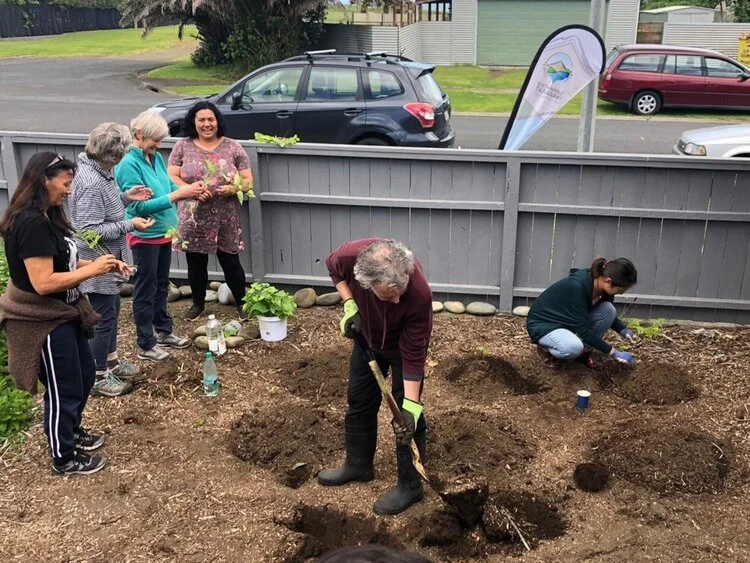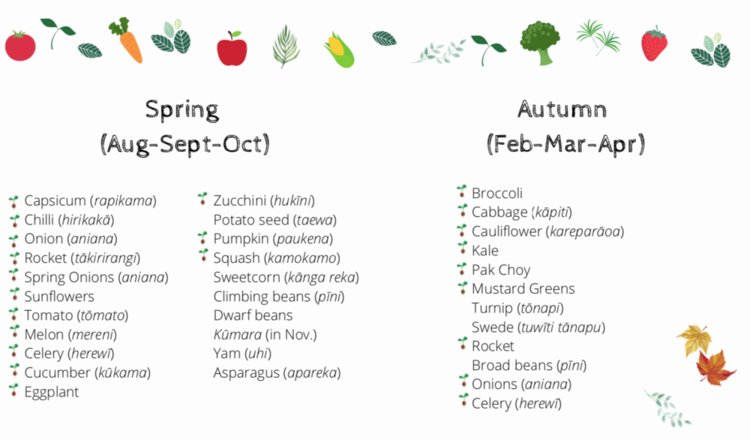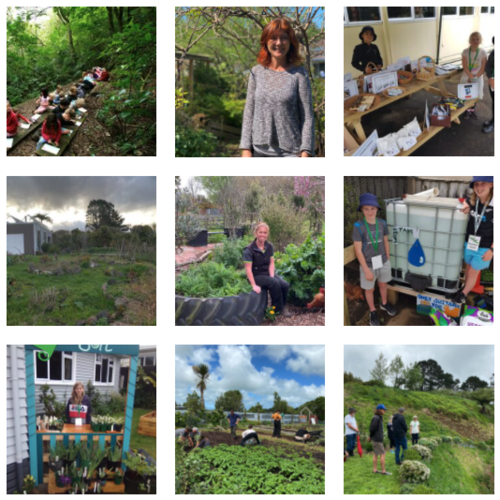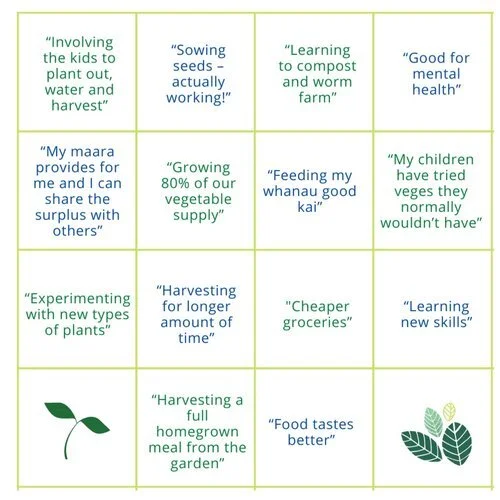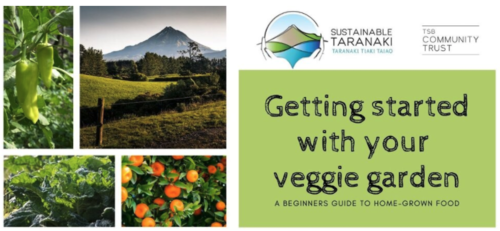Growing your own kai - pilot results
Our community’s interest in learning more about home-grown food was already there, but the Covid-19 lockdown definitely boosted everyone’s motivation to get their hands dirty: we all saw seeds and gardening supplies being in high demand, and how everyone decided that one of the best ways to spend the weeks at home was to get their vege garden set up.
Getting started with your maara kai workshop in Waitara held in November 2020. Participants are learning how to plant kumaras.
Our survey results from the summer of 2020 presented us with a number of valuable insights about our community’s sustainable habits, barriers, and motivators. Since then, we have focused our efforts on some of the topics that people seemed more interested in learning about – one of these has been the adoption of more sustainable food and gardening habits.
In order to support our community, we decided to, first, create resources that resonated with their needs and preferences: a Growing Calendar based on Taranaki conditions, video tutorials, a simple growing guide, and more - all to be found on our new page Grow Your Own Kai. This was accompanied by a social media campaign and experimentation around what types of messages were more appealing and received more responses from our community.
We also provided opportunities to learn more about gardening, such as our two workshops during the Spring, and a public event on growing food resilience and the relevance of collaboration across the community, Food Resilience Talks.
To measure the extent to which our pilot project supported our community to actually adopt new habits and access valuable information, we decided to collect information in two different moments through surveys: Spring and Summer.
Everyone who completed the Spring survey was sent a follow-up email with their responses: their gardening goal, three commitments to achieve it, benefits of reaching their goal, their potential barriers and ways to address them.
Current behavioural change theories show that setting a personal commitment is a great way to encourage the adoption of new behaviours. Additionally, respondents received a list of links and resources to support them on their gardening journey for the season and entered a mailing list where information like events, workshops and access to resources was shared.
Some of them joined our workshops, attended our events, visited some gardens during the Sustainable Backyards Trail and checked out our Grow Your Own Kai page. Others found useful information in books and video tutorials or asked a friend or family member to show them gardening basics. Our goal was to find out how they were able to change their habits and what resources they found more helpful in this journey.
Our results
The most rewarding insight from our survey was seeing that most of the people who hadn’t been growing food at home during the Spring had actually started doing it and were now well into Summer gardening!
When asking about gardening goals, some answers were more expected than others. The one that impressed us most was how many people valued teaching their children and grandchildren about gardening.
Being self-sufficient aligned with the messaging we had been sharing around food resilience and the Covid-19 context. We believe this is an important motivator for our community.
We then asked about the benefits linked to reaching their gardening goal, and these were some of the responses we found:
“Eating healthy, saving money on food and being active will make me happier”
“Mental stability, connected with nature and a sense of achievement”
“Better health by eating fresh vegetables and saving money on the weekly shopping bill”
Focusing on achievements, our results showed that our community has been growing lots of vegetables, for longer, with more experimentation and having homegrown meals at home; involving family, sharing produce, learning new skills and saving money by spending time in the garden.
We really enjoyed reading the responses to this question as you can actually see the excitement of some of them after a successful gardening season! Here are some examples:
It’s important to note that it hasn’t all been easy, as most people face challenges in their growing kai - journeys. Some of the most common barriers were general lack of time, not knowing where to start, needing more resources (especially around pest management), limited space and a drop in motivation once gardening became difficult.
However, others found it useful to work around these barriers by:
“Trial and error”
“Observing and learning from the conditions (weather, sun, wind, etc.)”
“Using recycled materials and sowing seeds”
“Doing little, often”
“Making it a priority”
“Learning more”
What have we leant from this?
A valuable source of gardening information seems to be learning from parents and grandparents. This intergenerational knowledge transfer is also at work when participants mention that sharing time in the garden with their children and seeing how they learn from them is a motivator.
Our how-to guide to getting started
Providing information that is local and easy to understand is a way to support behavioural change. Our growing calendar has received significant positive feedback from the community, and is a resource that will continue being shared, as well as our new gardening webpage.
While there are still barriers to adopt behaviours around home-grown food, we believe that the key is to continue encouraging our community with not only more resources, but also with targeted messaging and initiatives that align with their needs and preferences, that motivates them to do more and that supports them through their journeys.
We will continue using these insights into the next phase of our behavioural change project, which starts in May 2021.
If you are keen to learn more about this project, get in touch with Alex: info@sustainabletaranaki.org.nz
Read more about our work around food resilience, community gardens, growing your own kai, and sustainable food.
Written by Alexandra Vernal

